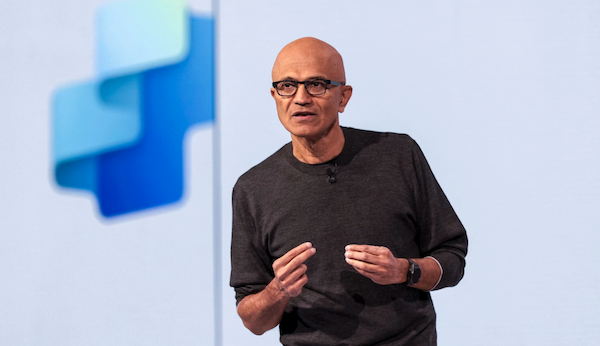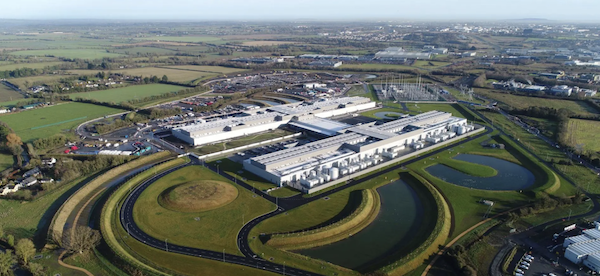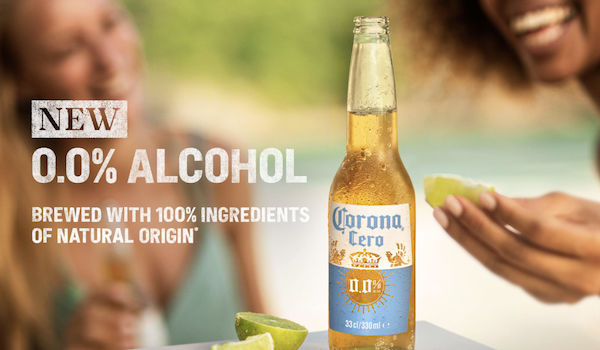Market scorecard
US markets slipped into the red yesterday, as a selloff in heavyweight tech stocks dragged the Nasdaq down sharply. Riskier assets from equities to crypto came under pressure.
In company news, biotech giant Amgen rose 2% after it lifted its full-year sales and profit outlook. Elsewhere, Uber delivered impressive growth in rides and deliveries, but a softer adjusted earnings outlook and hefty legal charges weighed on sentiment. Its stock price ended down 5.5%. Lastly, Apple is gearing up to launch its first-ever budget Mac, a lower-cost laptop designed to compete directly with Chromebooks and entry-level Windows PCs.
At the close, the JSE All-share closed down 1.56%, the S&P 500 fell 1.17%, and the Nasdaq was 2.04% lower. Ouch man, that hurts.
Our 10c worth
One thing, from Paul

Microsoft reported 3rd-quarter results last Wednesday night, and its stock price is down about 5% since then. That sounds less than ideal, but keep in mind that it's still up 26.6% this year and 131.1% in the last 5 years. It's a very reliable tech sector giant, with a well-diversified IT business.
To the numbers. They racked up revenue of $77.7 billion for the 3-month period, ahead of Wall Street expectations. The business unit that includes its Microsoft 365 software products logged revenue of $33 billion. Another $14 billion came from Microsoft's personal computing business, and the rest was generated by its cloud-hosting unit called Azure. Overall group operating income increased 24% to $38 billion, more than consensus projections. This is a very profitable business.
Satya Nadella (pictured here) has been the CEO of Microsoft since February 2014. He's only the third person to hold the position after company co-founders Bill Gates and Steve Ballmer, whom he succeeded. He's a great operator and is devoting more of his time to the company's AI initiatives.
On that note, Microsoft is enjoying more demand for its Azure division cloud computing and AI services than it can keep up with, and sales grew 40% year-on-year. In response, it will boost its AI capacity by more than 80% this year and double its total data-center footprint in the next two years.
They have now sorted out the OpenAI situation. Microsoft has a 27 % stake in OpenAI's for-profit entity, which owns ChatGPT. Microsoft will have exclusive intellectual property rights to OpenAI technology until 2032, and OpenAI is purchasing an additional $250 billion worth of Microsoft's cloud computing services, over the next 6 years (2025-2030).
OpenAI will most likely list on the stock exchange within the next year, and probably command a market value north of $1 trillion. Microsoft may seek to increase its stake once that happens. We shall have to wait and see.
We will remain invested in Microsoft. That's it.
Byron's beats

Last week, Meta initiated a corporate bond sale for around $25 billion in order to fund its aggressive AI infrastructure spending. The really interesting part is that the company has received orders of around $125 billion for the bond sale.
This is the highest demand for anything of its kind in history, according to Bloomberg. The previous record was $120 billion placed by investors when CVS needed funding to purchase Aetna.
Strong demand for debt means that investors are very confident that you can pay back the money and that the funds they are lending you are being invested in the right places. AI infrastructure requires a lot of clout and having so much liquidity banging on your door is a huge help for companies like Meta.
Michael's musings

Last week, AB InBev reported numbers that underline a growing trend of people avoiding alcohol. Beer volumes were down 3.9% and other alcoholic drink volumes were down 2.2%. On the flip side, there was a 27% increase in non-alcoholic beer sales. The impressive growth is off a small base, but it still highlights how tastes are changing.
Data shows that younger generations are drinking less, partly for health reasons and partly because they have fewer social outings. From a health perspective, booze is bad for you, even that odd glass of wine. The shift in consumption has resulted in companies providing more non-alcoholic options.
My fridge reflects the shift in preferences; I've got both normal and non-alcoholic beer sitting in the cooler. The taste of the non-alcoholic beers has improved over the years, meaning more of my friends drink them; in some cases because they are designated drivers or in other cases because they have decided not to consume alcohol during the week.
Will things progress to the point where drinking becomes a niche market, predominantly featuring high-quality, expensive brands? Time will tell.
Bright's banter

Berkshire Hathaway is approaching a defining moment in its storied history. At 95, Warren Buffett is set to step down as CEO at the end of the year, passing the torch to Greg Abel, his long-time lieutenant and carefully-chosen successor. The looming transition has cast a long shadow over the company's share price performance this year, but let's see how it has done on the earnings front.
The diversified conglomerate reported another strong quarter, with earnings up 17% year-on-year to $30.8 billion, driven largely by a rebound in its insurance businesses. Operating earnings, Buffett's preferred measure, rose 34% to $13.5 billion, helped by a mild hurricane season and a recovery at Geico. The group's cash pile swelled to a record $358 billion, underscoring Buffett's trademark patience in deploying capital.
Berkshire was again a net seller of stocks, for the twelfth straight quarter, that's five years of forgone gains, and hasn't repurchased any of its own shares in over a year. I find that strange considering we've had the Covid crisis, a big drop in 2022 related to inflation, and the tariff tantrum, all of which have been great buying opportunities for long-term investors.
The market isn't celebrating the transition. Berkshire's shares are up 8.1% year-to-date, while the S&P 500 gained 15.4% in the same period. I worry that without Buffett's steady hand and storytelling, investors may not grant Abel the same faith in Berkshire's famously opaque model.
Still, the numbers speak loudly. Between the fortress balance sheet, resilient insurance business, and the $9.7 billion Occidental deal, Berkshire remains less a stock than a financial ecosystem, and one that's still compounding, even as the Oracle of Omaha steps aside.
Linkfest, lap it up
The people who start businesses are the real heroes. Sure, the financiers of new businesses deserve some credit too - Founders over funders.
Teens who use green before turning 15 may be in trouble. They're more likely to develop mental and physical health problems in young adulthood - Kids, just stay away from marijuana.
Signing off
Asian markets are deep in the red this morning, with especially sharp declines in Japan, South Korea and Taiwan. Given the recent run, this can reasonably be described as "profit taking".
In local company news, Pick n Pay has shown confidence in CEO Sean Summers' turnaround strategy, vesting 2 million shares worth R56.6 million after key restructuring and leadership milestones were met.
US equity futures are flat in pre-market trade. In overnight US news, the Democratic Party has swept a number of state and city-level elections. This is not likely to be a concern for US markets, because Wall Street tends to be ideologically agnostic.
The Rand is trading at around R17.30 to the US Dollar.
Thanks for reading, have a good day.